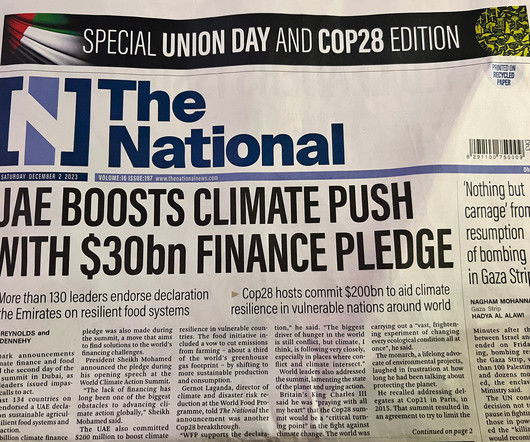Net Zero Strategy: Energy Systems Catapult calls for market incentives to be aligned with net zero agenda
Business Green
SEPTEMBER 1, 2021
Research body argues government must fix 'uneven' decarbonisation policies that continue to drive customers towards high carbon activities. The COP presidency provides us with a unique position, an opportunity, to move the debate forward and to accelerate global progress," he said.















Let's personalize your content